Alphanumeric Soup
It's common knowledge that today's auto execs are obsessed with "clinics", those allegedly scientific investigations into the public's views about a new or planned model. As in Hollywood, this fixation has sucked much of the vibrancy and innovation from the car business. For evidence of its crippling grip on the industry's creativity, look no further than the alphanumeric soup that is our new car marketplace: RX7, X3, XK8, S500, A4, SC430, F150, FX45, ad nauseam.
This pseudo-military mania stems from the widespread tenet that established vehicle names succeed at the expense of the parent company's visibility. Predictably, hired image and brand consultants wrongly view popular model monikers as a serious threat to the overall corporate gestalt.
Land Rover's decision to ditch the name 'Discovery' in favor of 'LR3' is but the most recent and glaringly wrongheaded example of this trend. 'LR3' might as well refer to Nokia's latest handheld or the Kenmore watercooler around which such a designation was surely conceived. Like virtually all alphanumerics, 'LR3' is wholly devoid of presence and says nothing about the vehicle or the company from which it originates.
'Discovery' is a far more emotive and appropriate title, especially given that Rover's Disco trades almost exclusively on its Kalahari-taming reputation– even if buyers only plan on visiting such climes while daydreaming during rush-hour. Have carmakers become so enthralled by focus groups that they've completely forgotten that vehicles are deeply emotional purchases?
Manufacturers defend this trend with an approvingly nod at the alphanumeric systems utilized by BMW and Mercedes-Benz. However, it bears noting that these companies forged their reputations convincing buyers of their unique approach to automobile building. BMW's dogged adherence to their "Ultimate Driving Machine" maxim is what made the brand famous and successful. Ditto Mercedes' "Engineered Like No Other Car In The World."
Critically, the naming schemes employed by the Teutonic Twins succeeded largely because both employ a simple underlying methodology. Even acute motorphobes understand that the 3-Series orbits below the 5-Series. They also grasp that a 760li costs more than a 735i; as the numbers increase, so too do the dollars commanded. The same logic pervades at Mercedes-Benz, where cost scales have historically increased alphabetically.
Of course, as model lineups expand, such schemes inevitably gain in complexity. Hence, BMW no longer enjoys the simplicity of managing just the 3, 5, and 7-Series. They've gone and dusted off the 6-Series, with the 1, 2, and 4-Series waiting in the wings. Add to these a growing stable of "X"-based softroaders and "Z" sportscars (along with their M-badged iterations), and the whole mess quickly devolves into a puzzling bit of mathematics. Mercedes is likewise afflicted, what with its exponentially expanding model lineup and AMG-branded variants.
Even so, BMW and Mercedes are in fine fettle compared to the branding entropy on exhibit in Cadillac showrooms. By introducing its current naming regime, The General has tacitly acknowledged that Cadillac lost the plot decades ago. Bob Lutz and friends correctly surmised that once-celebrated names like "Seville" and "Eldorado" have long since gone threadbare. Having found the onramp to brand redemption only recently, Cadillac elected to drop actual names from their trunklids in favor of a Scrabble tilebag full of three-letter combinations.
Unfortunately, there's no discernable rationale to their array. Not only do Cadillac's acronyms fail to stand for anything obvious, there's no hierarchy apparent among them. SRX? STS? CTS-V? Even the most fastidious pistonhead can be forgiven for failing to remember which is which, let alone successfully decipher their pecking order.
It's certainly true that many automotive aficionados' heart rates blip upon mention of such alphanumeric greats as Jaguar's XK-120 and Citroen's DS19. But the average consumer hasn't idea one as to what constitutes something as common as an MX-5, yet one need only utter the word 'Miata' to engender a spark of recognition and warmth.
Obviously, ill-chosen model designations can play a significant role in a company's demise. Remember Ford's Merkur gaffe? Dearborn's obtusely dubbed XR4Ti was inherently cursed, despite being a fairly dynamic proposition for its time. While the coupe's avant-garde aerodynamic addenda and grilleless countenance were surely to blame for most lost sales, the poor thing was also damned with a name that would give fits to even the most anagrammatically gifted enthusiast.
It's been said that car buffs treat their vehicles like family– even going so far as assigning them genders ("She purrs like a kitten"). Most would never consent to calling a pet goldfish 'GS400', let alone their own child. Why do automakers insist upon giving their own prodigy sexless, character-free names?
It's time to leave the alphanumeric cryptology to the Sunday Times crossword set. Great names do not usurp corporate recognition, they serve to define it. A rose by any other name may still smell so sweet, but who'd prefer to pick a RX-330?
More by Chris Paukert
Latest Car Reviews
Read moreLatest Product Reviews
Read moreRecent Comments
- Jkross22 When I think about products that I buy that are of the highest quality or are of great value, I have no idea if they are made as a whole or in parts by unionized employees. As a customer, that's really all I care about. When I think about services I receive from unionized and non-unionized employees, it varies from C- to F levels of service. Will unionizing make the cars better or worse?
- Namesakeone I think it's the age old conundrum: Every company (or industry) wants every other one to pay its workers well; well-paid workers make great customers. But nobody wants to pay their own workers well; that would eat into profits. So instead of what Henry Ford (the first) did over a century ago, we will have a lot of companies copying Nike in the 1980s: third-world employees (with a few highly-paid celebrity athlete endorsers) selling overpriced products to upper-middle-class Americans (with a few urban street youths willing to literally kill for that product), until there are no more upper-middle-class Americans left.
- ToolGuy I was challenged by Tim's incisive opinion, but thankfully Jeff's multiple vanilla truisms have set me straight. Or something. 😉
- ChristianWimmer The body kit modifications ruined it for me.
- ToolGuy "I have my stance -- I won't prejudice the commentariat by sharing it."• Like Tim, I have my opinion and it is perfect and above reproach (as long as I keep it to myself). I would hate to share it with the world and risk having someone critique it. LOL.



















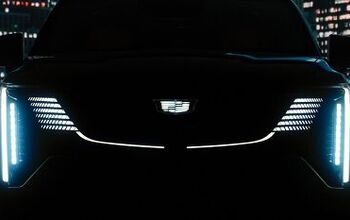
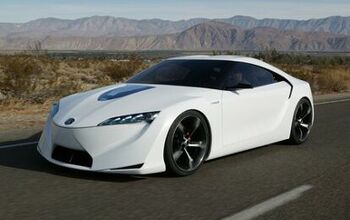
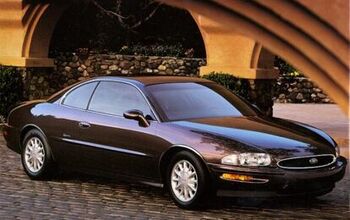
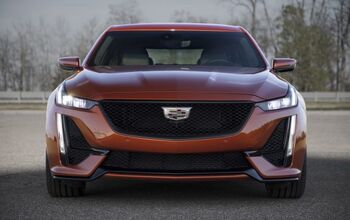







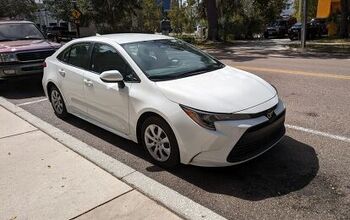



Comments
Join the conversation